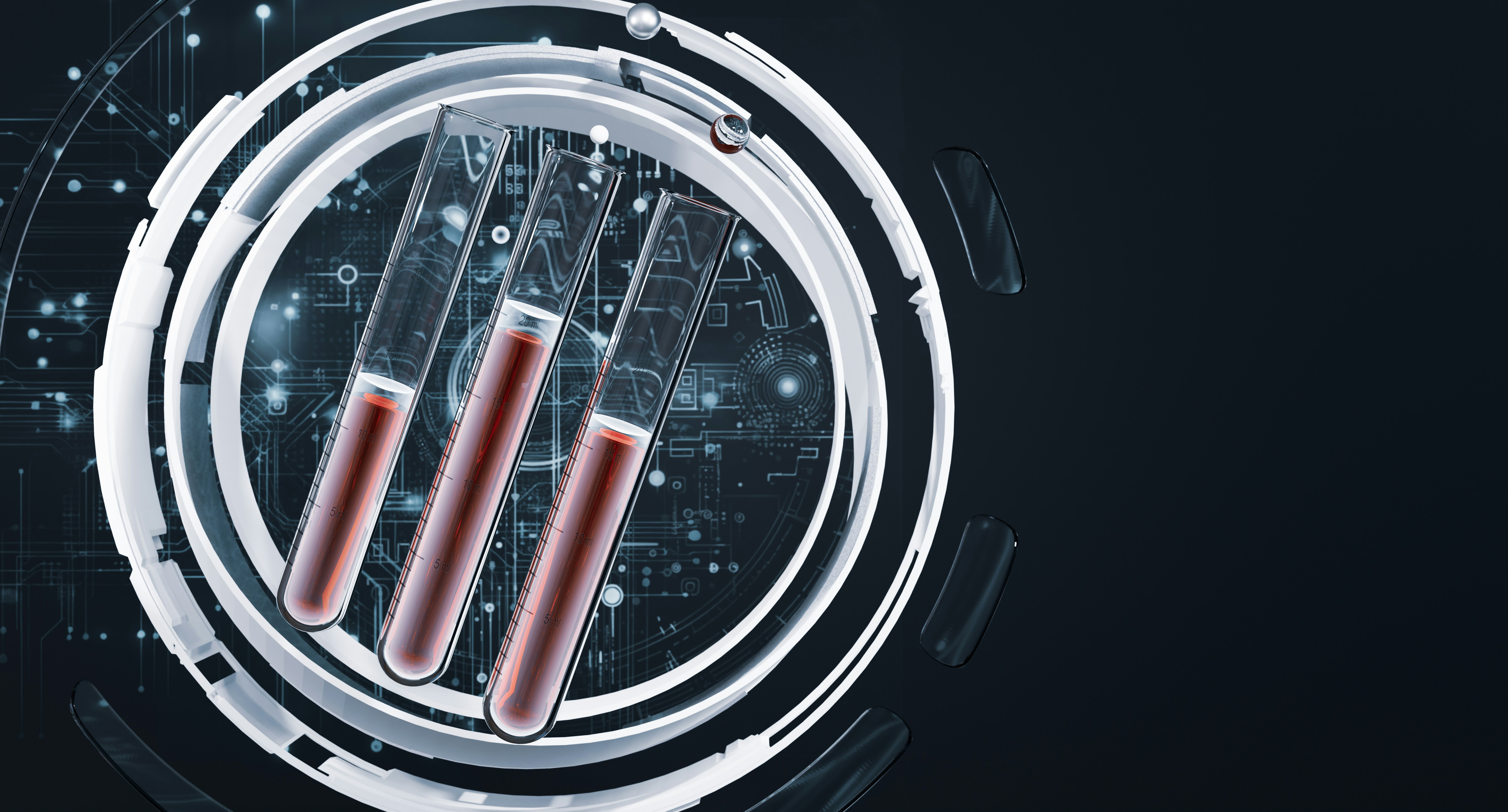Drop off your CV/Resume
We'd love to hear from you. Send us your CV/Resume and one of our team will be in touch.

In recent years, medical technology has done more than just evolve. It’s reshaped healthcare, changing the way patients and providers interact globally. From AI in healthcare diagnostics to wearable health monitoring devices, these innovations are creating exciting possibilities that redefine how we manage health. Market growth feels unstoppable, with a global surge powered by a need for better, faster, and more accessible healthcare solutions.
In this guide, we explore emerging global Med Tech trends and their impact on global healthcare solutions. We will also highlight the importance of Med Tech careers, recruitment, and skilled professionals in driving continuous innovation within the industry.
But first, let’s cover what exactly defines Medical Technology:
When we talk about “Med Tech,” we’re referring to much more than high-tech devices. Medical technologies are devices and services used to manage a person’s health. They can be broadly grouped into:
Med Tech isn’t just about treating illness; it’s about empowering people to stay ahead of it. Whether it's a quick diagnostic test or an app that allows real-time health tracking, the industry’s impact is visible, personal, and undeniably valuable. Ultimately, these tools have the potential to transform our healthcare, improving the quality and efficiency of healthcare systems and enabling and empowering people to live well for longer.
Healthcare is undergoing a significant transformation, with advances in medical technology bringing new ways to enhance patient care and access. From digital health tools to AI in diagnostics, these innovations are reshaping the future of healthcare and how healthcare is delivered, monitored, and managed.
With that said, here are five key Medical Technology trends making a substantial impact on the healthcare industry today:
Remember when telemedicine was considered futuristic? Now, it’s everywhere. Patients can consult doctors from their living rooms, reducing travel time and making healthcare more accessible. Digital health apps have gone from niche to normal, offering tools for mental health support, chronic disease management, and more. This isn’t just convenience; it’s life-changing access for people in remote areas or those with limited mobility.
With the global digital health market expected to reach $836.10 billion by 2031, digital health trends are only getting stronger. With digital health’s rapid growth, Med Tech recruitment has skyrocketed for health app developer roles, telemedicine jobs, and wearable technology designers. In short, Med Tech is creating jobs that didn’t exist a decade ago—jobs that are vital to the future of healthcare.
Below is a list of key digital health trends:
Point-of-care (POC) diagnostics are another big winner in Med Tech’s transformation. These tools give instant results at the patient’s bedside or clinic, bypassing the wait times that often come with traditional lab testing. The time it takes to receive results changes from days to minutes. POC diagnostics are a game-changer for monitoring chronic diseases or managing emergency care, especially in aging populations where frequent hospital visits can be challenging.
The global market for POC diagnostics market was valued at USD 44.24 billion and is expected to grow at a compound annual growth rate of 6.1% from 2024 to 2030. This demand fuels recruitment for roles in clinical research, lab technology, and diagnostics manufacturing as companies race to meet the need for rapid, accessible healthcare solutions.
Point-of-Care Diagnostics has seen several advancements within the industry, such as:
The Internet of Medical Things (IoMT) sounds complex, but it’s essentially a network of devices that “talk” to each other to improve healthcare. Wearable devices, patient monitoring tools, and home health equipment are all part of this interconnected ecosystem, and they’re transforming patient care by providing real-time health data that informs treatment.
IoMT is making healthcare smarter. Doctors can monitor patients outside the hospital, adjust treatment plans based on real-time data, and respond to emergencies faster. However, with this level of connectivity, data security is a big concern, and hiring IoT engineers, cybersecurity specialists, and healthcare technology experts is essential. Med Tech companies are actively searching for talent who understand both the tech and the critical privacy requirements of patient data.
IoT technology has also significantly advanced. Here are some examples of new innovations within the sector:

AI in healthcare diagnostics is setting a new standard for diagnostics. AI can scan medical images and flag issues doctors might miss or predict health risks based on genetic profiles. It’s no secret that AI is becoming more than an assistive tool and is driving innovation in early detection.
With predictive analytics, doctors can now foresee potential health problems before they escalate. This area of Med Tech has driven a strong demand for data scientists, AI engineers, and bioinformatics specialists. Recruitment in this sector is about sourcing professionals who can work with AI in ways that truly transform healthcare. In a world where early detection can be life-saving, finding the right experts is invaluable.
There have been several AI in Diagnostics advancements that are reshaping healthcare, including:
Wearable health monitoring devices have quickly evolved from step counters to sophisticated devices that monitor heart rates, sleep patterns, and even stress levels. For people managing chronic conditions, wearables offer the ability to check their health data daily. Devices like smartwatches and health trackers are enabling patients to take charge of their own health in unprecedented ways.
As we see a notable surge in wearable technology, we begin to learn that it is not only revolutionizing patient care but also fueling recruitment. Med Tech companies need developers, engineers, and data analysts who can keep pace with the growing demand for innovative health tech products. While wearables are great for tracking fitness, they have become tools that empower people to manage their health and well-being more proactively.
Advancements in wearable health monitoring devices are reshaping the way we monitor our health. Below are some key progressions:
The global surge in Med Tech also means tougher regulations. For instance, the FDA in the U.S. has rolled out guidelines for digital health products, ensuring these tools are safe and reliable. In Europe, it’s a similar story. The new in vitro diagnostics (IVD) regulations that started in 2022 are pushing for safer, more transparent devices, which means Med Tech companies are adapting to meet high standards.
These shifts impact both companies and patients, and there’s a ripple effect on hiring, too. As regulations become stricter, companies need experts who understand compliance inside and out. Roles in regulatory affairs are not just “nice to have” anymore—they’re essential. And that’s where recruitment plays a huge part.
As we briefly mentioned earlier, Med Tech recruitment is the backbone of industry growth. The demand for talent spans regulatory affairs, AI, IoMT, and digital health, with each area needing professionals who bring both technical expertise and healthcare insight. Finding candidates who understand both fields is a challenge, but it’s also a necessity.
Take a look at some of the most crucial Med Tech jobs where demand for talent is on the rise:
Effective Med Tech recruitment strategies ensure that companies are building teams that drive innovation. For companies, focusing on Med Tech recruitment that highlights opportunities for growth, impact, and the chance to be part of a transformative industry is a powerful way to attract the best talent. For recruiters, understanding the unique requirements of each Med Tech niche can make all the difference in finding candidates who truly fit.
To learn how your business can attract and retain skilled Med Tech professionals, discover our insightful guide - How to Attract and Retain Top Talent for Your Med Tech Jobs.
Medical technology has sparked a transformation in healthcare, providing tools that empower patients to take charge of their health and allow healthcare professionals to deliver more precise, efficient care. From wearable health monitors to AI-driven diagnostics, these innovations are reshaping how health is managed and accessed, creating a new level of connection in care.
The surge in Med Tech has also fueled demand for talent across areas like regulatory compliance, data security, and AI integration. Med Tech recruitment plays a vital role in supporting this growth, as companies need professionals who can manage both the technical and healthcare aspects of these advancements. Skilled Med Tech professionals are now essential in bringing these technologies to life and ensuring they meet safety and regulatory standards.
Ultimately, Med Tech is redefining what’s possible in healthcare, making health management more personalized and accessible.
Are you looking for the brightest Med Tech professionals? Over the years, our experts have sourced outstanding candidates for global businesses. We take the time to truly understand your business needs and ensure we find the right placement for you. Through our extensive networks and unmatched industry insights, we source experts who are eager to drive Med Tech innovation and keep up with industry trends and regulations.
Contact us today to begin building your innovative team.